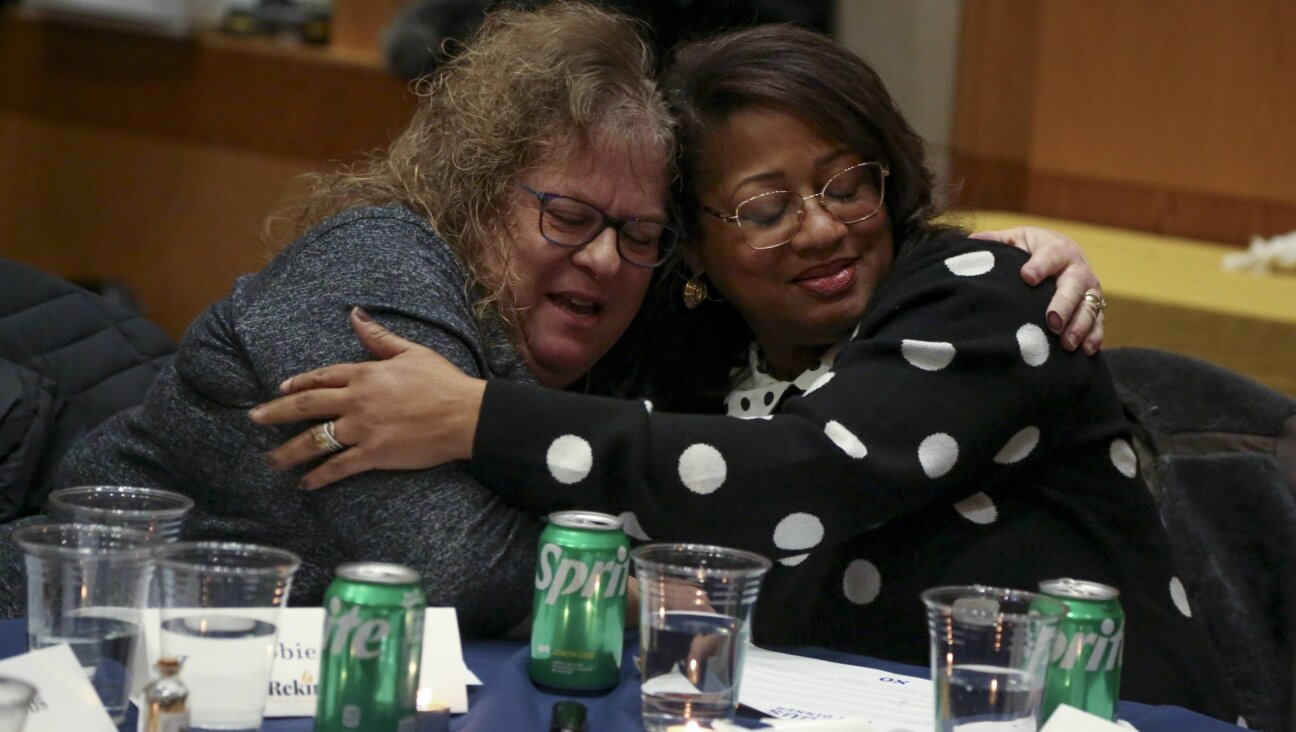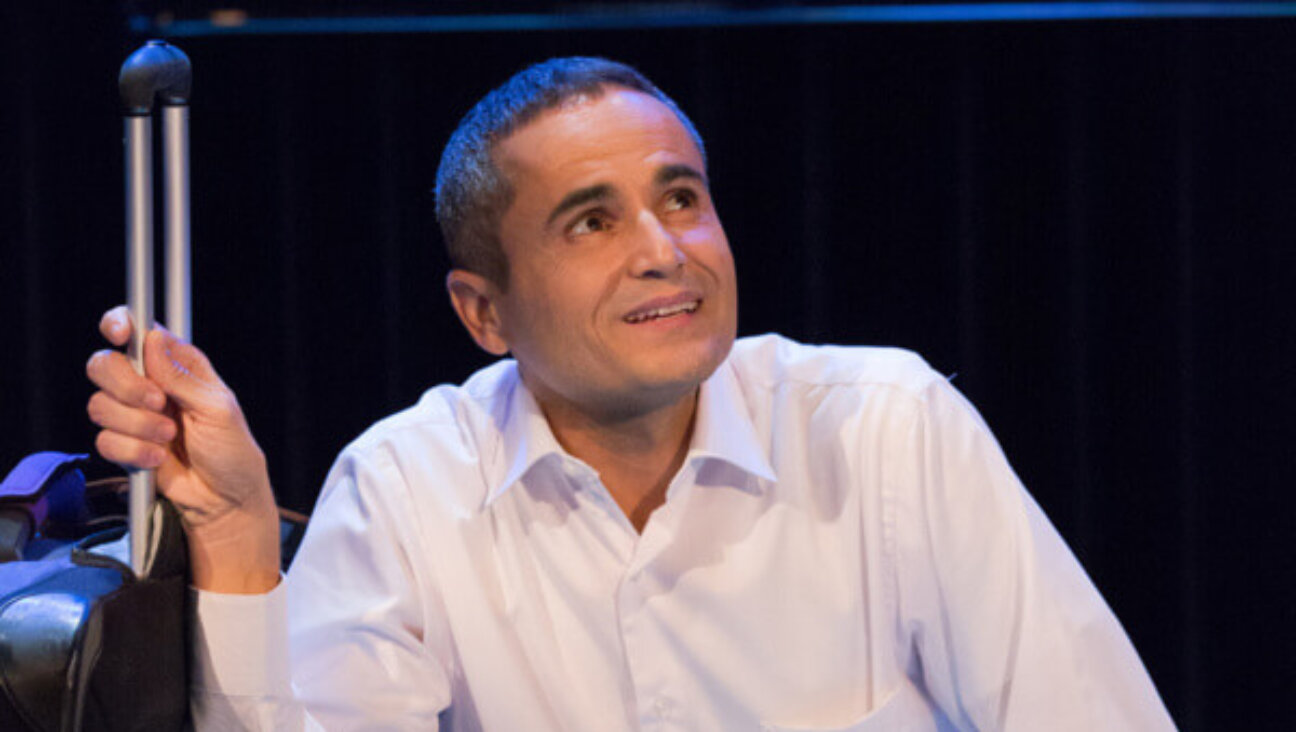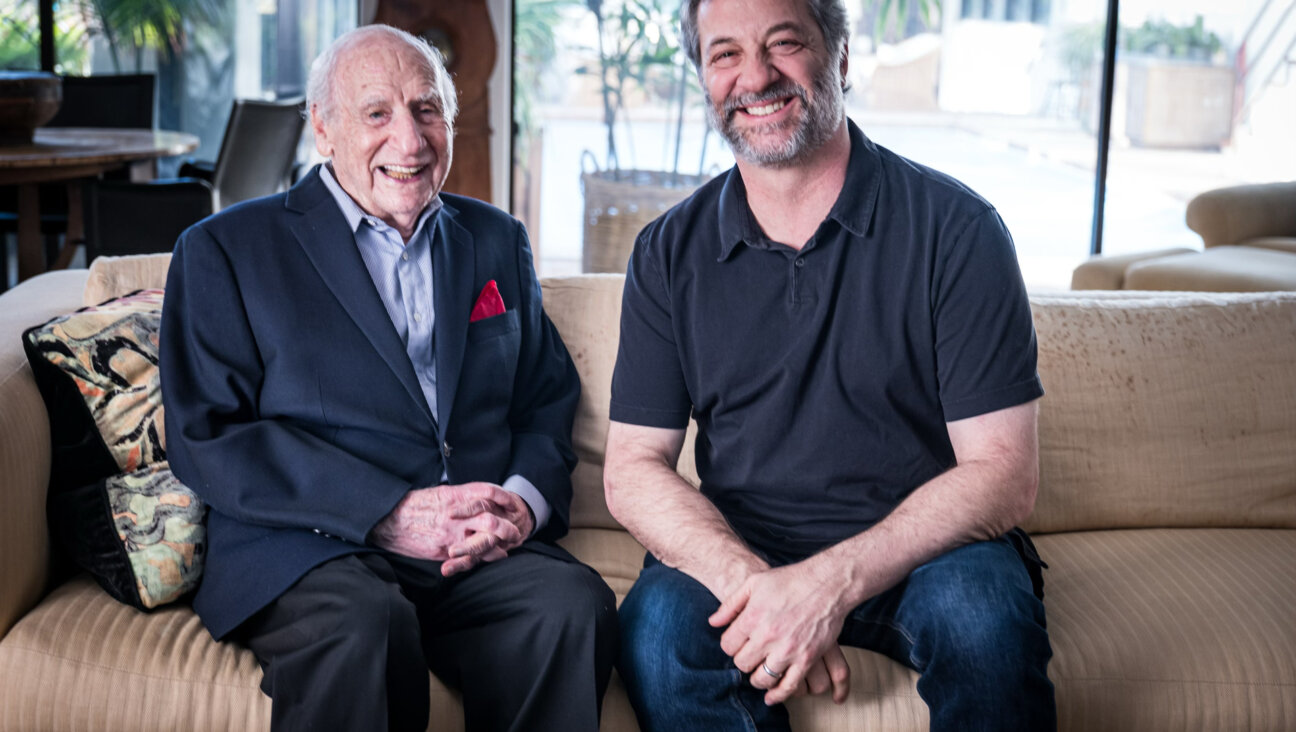Organizers of Bible Quiz in Israel Get Question of Their Own: ‘Who is a Jew?’
Haifa, Israel – The organizers of Israel’s annual state-run Bible Quiz are used to asking tough questions. But as this year’s contest approached, the tables were turned as they were forced to answer one: Who is a Jew?
The Bible Quiz is a popular highlight of the country’s yearly Independence Day celebrations, introduced by the prime minister and broadcast live on national television. Thousands of Israelis tune in to see teenagers battle to determine who knows the most about the Good Book.
Contestants come from Israel and the Diaspora. The only prerequisite for entry is that you have to be Jewish.
There are no records of contestants who had been excluded because their Jewishness was contested at any point in the quiz’s 45-year history. In mid-April, however, a furious controversy erupted following the disclosure that Bat-El Levy, one of the four Israeli finalists this year, comes from a West Bank family of so-called messianic Jews who believe in Jesus as the messiah.
Rabbis and anti-missionary activists, already shaken by a recent Supreme Court decision permitting 12 messianics to immigrate under the Law of Return, demanded that the 17-year-old be disqualified. Opponents charged that her participation would help her community advance what critics call creeping legitimacy as a variant of Judaism. “These people want to become part of the Jewish family,” said Rabbi Shlomo Aviner, a prominent religious-Zionist figure and a leader of the protests. “We must stop this girl from contesting.”
The messianics replied that the protests were an example of the constant prejudice they face in the Jewish state. “The reaction to this contestant shines a light on a phobia that exists toward messianic Jews in Israel,” said attorney Calev Myers, de facto spokesman for Israel’s 100 messianic congregations.
The quiz organizers themselves, inclined to exclude Levy but concerned about violating the law, turned to their own attorneys for guidance. The attorneys, in turn, told them not to bar Levy.
The Bible Quiz is run jointly by the army and the Education Ministry, and it is one of the few Jewish studies initiatives in Israel that enjoys participation and widespread interest among both secular and religious Jews. In the months leading up to the final round, held each year in Jerusalem on Independence Day, Jewish Agency representatives in 30 countries organize regional championships to choose the finalists.
There have been controversies in the past. In 2003 there was a bitter row over who should represent the United Kingdom when the winner of the British regionals, the King David High School of Manchester, was accused of cheating, and Immanuel College of London, the second-place school — and the Manchester school’s accuser —represented Britain in Jerusalem. Last year, organizers faced an odd complaint after winner Yishai Gispan said he did not deserve his own victory because an answer he gave was inaccurate.
Up till now, however, controversies have always been internal, procedural matters and have never turned the contest into a battleground for general issues of worldwide Jewish interest, as happened this year.
Levy was outed as a messianic Jew by Yad L’Achim, an international anti-missionary organization run by Orthodox rabbis. The organization immediately called for her disqualification. “There is deception going on here,” Rabbi Aaron Rubin, one of the group’s Israeli leaders, told the Forward. “The girl and her family claim to be Jews, but they are fundamentalist Christians.” The Levys were unavailable to explain their beliefs.
“If you declare a belief in Jesus as the messiah, you give up being a Jew,” Rubin said. Allowing Levy to participate sets a precedent in violation of this principle, he said. Israeli messianics say they are a growing force. Myers, founder and chief counsel of the Jerusalem Institute of Justice, which represents their interests, claims their ranks have swelled to almost 15,000, representing a 30% growth in the last half-decade. Yad L’Achim says the figures are seriously exaggerated for public relations purposes. No independent statistics exist, but press accounts frequently cite a figure of 8,000.
Long irritated by Yad L’Achim’s declared determination to marginalize them, the Messianics reacted with fury to the call for Levy’s disqualification. Myers accused the anti-missionary group of “a type of cultural terrorism and harassment.” He said this was the latest incident in “an ongoing incitement and propaganda war by the ultra-religious.
“This is especially marked in the Haredi press, which puts forward the view that every Messianic Jew is a missionary and every missionary is like Hitler.”
Among the quiz organizers, “nobody was happy” upon learning of the contestant’s faith, said Shlomo Ben-Tzura, who is in charge of Israeli entries.
“We talked with lawyers, but couldn’t do anything,” he said. “Everybody wanted to say she isn’t a Jew, but nobody could do anything.” He said that as the daughter of a Jewish woman, she meets the standard criteria to be considered a Jew under Halacha, or traditional rabbinic law. Legally, he added, there was no room to challenge her status, since she is listed as Jewish in her state papers — which do not always follow halachic definitions.
On hearing this decision, a dozen influential rabbis, with the backing of Yad L’Achim, issued a statement appealing to contestants and spectators to boycott the contest. “People must not participate,” said Aviner, chief rabbi of the West Bank settlement of Beit El. “These people [messianics] are looking for many ways to come closer [to mainstream Jews] and make themselves more acceptable, and they are looking for every trick they can to do this. We must stop them.”
Fears that messianics are advancing their status were heightened by the fact that the quiz decision came less than a month after the Supreme Count appeared to hand them another victory on the “Who is a Jew?” question.
Since the early 1960s, Messianics have been considered ineligible to settle in Israel under the Law of Return, based on the legal precedent of the so-called Brother Daniel case.
Brother Daniel, born Oswald Rufeisen, was a Polish Jew who was hidden by Catholics as a child during the Holocaust. He adopted his rescuers’ faith and became a Carmelite monk. When he applied for immigration as a Jew in the 1950s, the Israeli government rejected him on the grounds that becoming a Christian annuls one’s Jewish identity. Israel’s Supreme Court upheld the decision on appeal in 1962.
In 2006, Myers, a lawyer by profession, began to challenge the premise that the Brother Daniel precedent excludes Messianic Jews from the Law of Return. He took on the case of 12 people with Jewish fathers — a standard criterion for immigration under the Law of Return — who were nevertheless refused citizenship because they believe in Jesus.
Last month, the Supreme Court ordered that they be allowed the same immigration rights as anyone with a Jewish father. “We are very pleased by this, and by the quiz’s decision,” Myers said.
Victories for Myers constitute a double tragedy in the eyes of Yad L’Achim and its supporters. “These people have no place in the quiz and no place in the country,” Rubin said.
Messianics say they face harsher opposition than other non-Jewish religions with Israeli followings, such as Buddhism and Hindu meditation. Observers have argued that Christianity raises more emotional opposition because of the historical tensions between Christianity and Judaism. Today, some experts say, the emotion is giving way to an inevitable process of normalization between the Jewish state and the messianics.
“Messianic Jews are widely despised because they claim to be Jewish while declaring a belief in ‘Yeshua,’” explained Dan Cohn Sherbok, a Reform rabbi who is a theology professor at the University of Wales in Britain and has written widely on messianic Judaism. “However, what is accepted as the Jewish community is so diverse and pluralistic, even including groups like humanists who are actually nontheists, that anybody will have a hard time excluding messianics and justifying doing so.”















